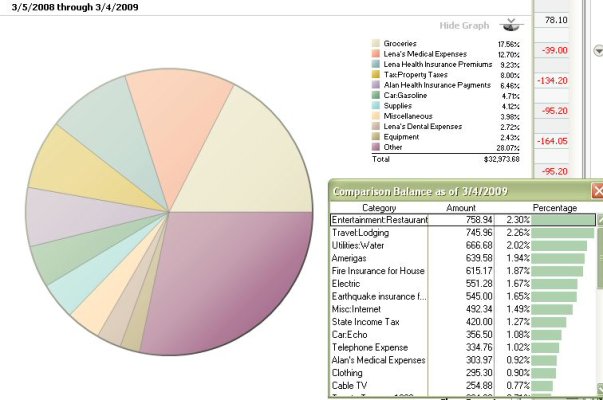oliverdickens
Recycles dryer sheets
- Joined
- Sep 23, 2006
- Messages
- 69
I know it does not help much when we watch the portfolio's shrink by the 100K++ units year to year.
There are only two things that keep me sane:
1. Going back to determine how much money I have saved over the years vs current balance. I still am at 10X what I invested thanks to the golden years of the 90's
2. Was "lucky" enough to get laid off in July 06, so I shifted, at the time, 50% of my portfolio to a CD ladder system. Now that portion is more like 67% of my portfolio, as the stock portion ( and darn financial preferred stocks) continue to drop everyday.
I think too many months have gone by to gain back any significant employment, so I just keep working my spreadsheets, we are going further into living below our needs, ie taking out less of portfolio, and somewhat hoping for the best.
A little scared with the recent Obama budget and what it will do to further decimate Wall Street though as that leg has to come back.
Sorry my two cents to keep sane.
Thanks
There are only two things that keep me sane:
1. Going back to determine how much money I have saved over the years vs current balance. I still am at 10X what I invested thanks to the golden years of the 90's
2. Was "lucky" enough to get laid off in July 06, so I shifted, at the time, 50% of my portfolio to a CD ladder system. Now that portion is more like 67% of my portfolio, as the stock portion ( and darn financial preferred stocks) continue to drop everyday.
I think too many months have gone by to gain back any significant employment, so I just keep working my spreadsheets, we are going further into living below our needs, ie taking out less of portfolio, and somewhat hoping for the best.
A little scared with the recent Obama budget and what it will do to further decimate Wall Street though as that leg has to come back.
Sorry my two cents to keep sane.
Thanks

